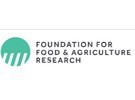The Foundation for Food & Agriculture Research’s (FFAR) Precision Indoor Plants (PIP) consortium is providing the University of Florida a $2,112,454 grant to define and enhance the physical and genetic traits in tomatoes that affect flavor and that can make them suitable for controlled environments.
“Controlled environment agriculture has the potential to revolutionize our relationship with food by making our crops more nutritious, flavorful and readily available,” said Dr. John Reich, FFAR scientific program director and director of PIP. “This research is expanding controlled environment agriculture to popular crops, while also making the crops grown indoors more desirable to consumers."
Controlled environment research and development to date primarily focuses on yield and prioritizes lettuce and other leafy greens that quickly provide high yields in controlled environments. Due to the current small market for crops grown indoors, major seed companies are hesitant to invest in developing varieties of other crops that need genetic enhancement or specialized technology to make the transition to indoor cultivation. PIP seeks to mitigate this hesitancy by investing in research to advance indoor crops with consumer-desired traits, such as flavor.
Tomato research
University of Florida researchers led by Dr. Denise Tieman, along with collaborators Dr. Robert Jinkerson at University of California, Riverside, Dr. Leo Marcelis at Wageningen University and Dr. Hye-Ji Kim at AeroFarms, are targeting the traits, technology and ideal growing conditions that allow tomatoes to thrive in controlled environments. The researchers are determining the ideal tomato physical traits for controlled environment—more fruit on smaller plants, for example—to optimize yield under a variety of conditions. They are also optimizing plant growth, growing tomato varieties under a range of different indoor farming conditions, and adjusting inputs such as lighting, temperature and fertilization.
This research also provides an opportunity to develop tomato varieties that taste good to consumers, which has traditionally been difficult to achieve in outdoor environments where breeding efforts have been focused on yield and disease resistance at the expense of flavor. The team is selecting flavorful varieties of tomatoes with the best potential when grown indoors and introducing the genes controlling flavor traits into indoor-grown varieties that are high yielding, so neither trait comes at the expense of the other. The goal is to uncover the environmental conditions that can provide consumers with a consistently flavorful tomato, while also supplying farmers a high-yielding crop that is desired by consumers.
“Consumers are generally dissatisfied with the taste of supermarket tomatoes. If we can deliver great tasting tomatoes year-round through indoor agriculture, consumers will consume more tomatoes and be happier and healthier as a result,” said Tieman.
The final goal of this project is establishing a basis for future breeding improvements. The research provides a pipeline of traits uniquely suited to controlled environment growth and further the knowledge of plant traits, growth conditions and fruit quality analysis to grow high-value tomatoes indoors. The research serves as a foundation for developing varieties with other desired traits, including disease resistance and postharvest shelf life.

